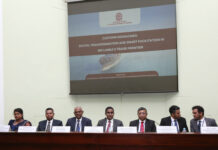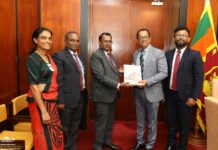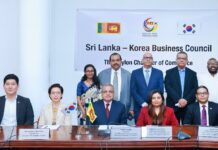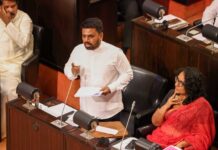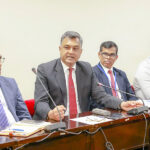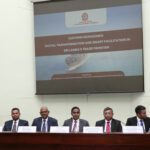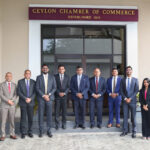History has shown time and time again that migrants play an important role in shaping and transforming landscapes of countries through various contributions ranging from knowledge, skills and networks in order to build more resilient societies.
This year, on the 18th of December 2021, we celebrate the International Migrants Day under the theme ‘Harnessing the potential of human mobility’. This year marks the 70th Anniversary of the International Organization for Migrations (as renamed in the year 1989), which was founded with the original intention of assisting those who were displaced by the Second World War, but went on to and continues to lead the way in promoting humane and orderly management of migration in not only countries of destination but also that of origin and transit. A milestone that warrants celebration.
Each year, due to various factors resulting from increased magnitude and frequency of natural disasters, economic challenges, poverty and conflict, more and more people either voluntarily become, or are forced to become, international migrants. For example, in the year 2020 alone, almost 281 million people were International Migrants who represent 3.6 of the global population.
“Therefore, it is vital to take note of the increasing trends in out-migration and take steps to develop policies and strategies in order to harness the maximum contribution of migration to the economy of the country while safeguarding and protecting the rights and interests of the migrants as well”, said Hon. State Minister of COVID19 control, Primary Healthcare and Epidemics and the Chairperson of the Women Parliamentarians’ Caucus, Dr. Sudarshini Fernandopulle.
The most common form of migration in Sri Lanka in particular is international labour migration which has been on the rise during the last three decades. Estimates suggest that generally around 1.5 million Sri Lankan migrants work abroad while the annual reported outflows average around 200,000 persons per year.
“This day is of special interest to the Women Parliamentarians’ Caucus in particular as statistics show that generally around 47.7% of the labour migrants of Sri Lanka are women”, added Dr. Fernandopulle.
Due to the COVID-19 pandemic that is affecting the global economy and human movement since early 2020, the statistics pertaining to migration, labour migration in particular, has altered during the last two years.
“In August, the Government, with the support of the International Organization for Migration and the Australian Government, undertook measures to repatriate a group of Sri Lankan migrant workers from Kuwait”, said Dr Fernandopulle.
With the mobility of people being affected and more labour migrants returning home from destination countries, Sri Lanka is developing strategies to reintegrate and re-socialize by harnessing the skills obtained by such individuals from working abroad for the country’s economic benefit, especially in some identified sectors for economic recovery such as in the fields of tourism and ayurvedhic medicine.
She further remarked, “For the year 2022, Rs. 150 million has been allocated in the budget for the Safe and Regular Labour Migration Programs. We are mindful of the fact that these centers should also be duly monitored ensuring that human rights-based practices are followed”. Furthermore, focusing on one of the most vulnerable stages in the migration process, providing better pre-departure training to labour migrants and also to implementing agencies would be prioritized in the coming year.
In 2018, less-skilled and domestic worker categories represented 55.2% of the total departures for foreign employment from Sri Lanka, as per the statistics obtained from the Sri Lanka Bureau of Foreign Employment (SLBFE).
“In special consideration of this fact, the Women’s Caucus has initiated discussions with the Government for the ratification of ILO Convention No. 189 in order better protect and safeguard the rights and interests of domestic workers, who make a substantial contribution to the economy of Sri Lanka, especially through foreign remittances”, said Dr Fernandopulle.



